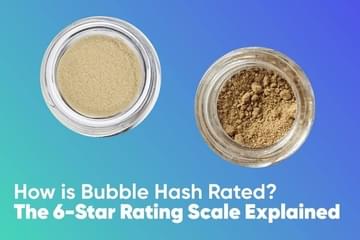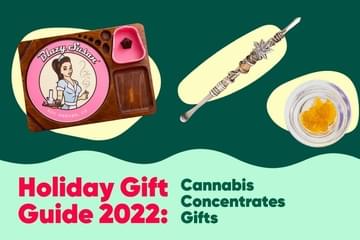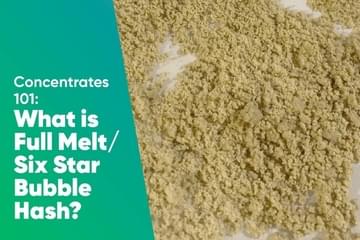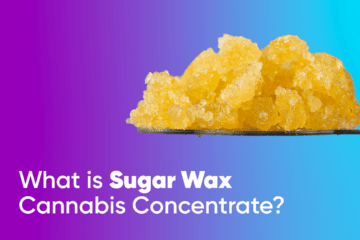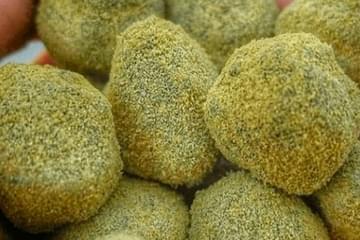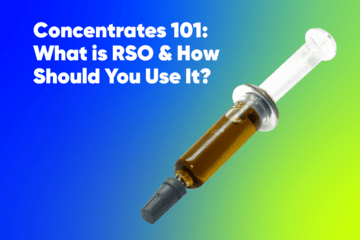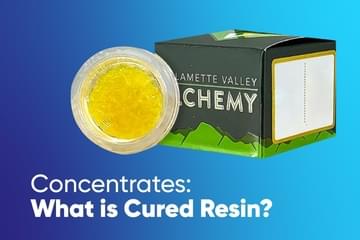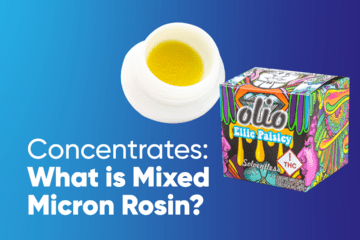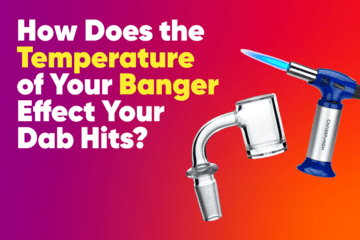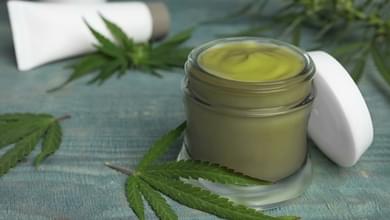
Cannabis Topicals: What Are They and How Do They Work?
Published on 11/23/21
Thanks to the raging popularity of CBD oil, topicals are among the hottest sellers on the cannabis product market. Though many people are only now learning about the potential healing benefits of marijuana topicals, our forebears were in on the secret.
Marijuana topicals may be traced back to ancient Egypt, where the Ebers papyrus reveals their use for anti-inflammatory purposes. Much later, Queen Victoria of England is reputed to have used cannabis tinctures and cannabidiol (CBD) oil to relieve menstrual cramps. Today, cannabis topicals are widely available and tapped for their potential to treat pain, inflammation, mood disorders, and much more.
Here, you'll learn how topicals work, understand the difference between various types of topicals, and dive into the science behind their therapeutic capabilities.
How Cannabis Topicals Work
Cannabis topicals act as lubricants that penetrate the surface layer of the skin. But their treatment goes much deeper. Cannabis topicals work by directly entering the bloodstream via the skin. Once in the bloodstream, they bind with different cannabinoid receptors in your endocannabinoid system. Within an hour, you will likely start to feel the effects of a topical.
You may opt to use a full-spectrum cannabis product containing THC, CBD, and a range of terpenes (flavorful and aromatic compounds). Or, you may choose a pure CBD isolate product. Full-spectrum products do precisely what their name implies; they offer an infusion of every possible element the plant naturally provides. On the other hand,CBD isolate strips away other cannabinoids, and in the process loses some therapeutic properties.
The other main difference between the two types of products is that hemp or CBD-derived topicals are legal to purchase over-the-counter. Any products containing THC require a medical marijuana card and doctor's prescription, and are not available at all in some states.
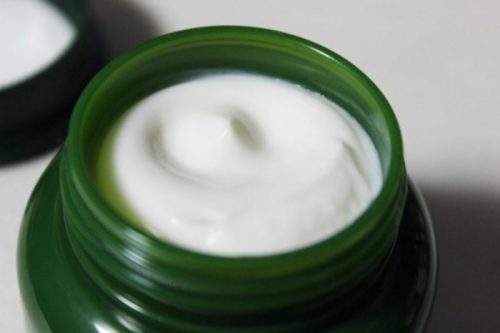
Types
The market for cannabis topicals has heated up in the past decade with an ever-increasing demand for CBD products. Here are some of the most common types of marijuana topicals:
Creams and Lotions
Cannabis creams and lotions are easy to apply anywhere on the body. They are especially useful for people seeking skin benefits and may be applied to extra dry body parts such as the knees and elbows. Some people even use cannabis creams on their face as a beauty treatment.
Oil
Cannabis and CBD oils are versatile, as you may apply them topically or ingest them orally. A small amount of cannabis oil under the tongue or a teaspoonful may complement topical application.
Salves
Cannabis salves or balms are similar to creams and lotions but may offer even greater healing benefits. Salves are usually softer than lotions as they contain beeswax. People suffering from psoriasis and other skin disorders may find relief in medicinal salves.
Gels
Gels exert a cooling effect, which makes them an excellent option for treating headaches. Applying a few drops to the temples and forehead can help relieve sinus pressure, or simply provide cool relief for a tension headache.
Transdermal Patches
Transdermal patches are the most powerful form of cannabis topicals and the only type with the potential to get you high. However, pure CBD patches will not have a psychoactive effect and may be beneficial for lower back pain. Patches come with an adhesive side that you stick to the affected area, leaving in place for up to 72 hours.
Each of these types of topicals is available in plain or scented varieties. Popular scents include lavender for relaxation and citrus for invigoration. Furthermore, you may mix CBD topicals into a carrier oil like coconut oil and infuse with other essential oils for additional therapeutic benefits.
Dispensaries sell topical cannabis products labeled as cruelty-free with no ingredients tested on animals.
Health Benefits
Most people turn to topical marijuana products for pain relief. There is indeed evidence that cannabis topicals effectively treat pain and accompanying inflammation. In addition, emerging research has shown that CBD oil may be helpful in treating eczema and other skin conditions.
Reducing Pain & Inflammation
One animal study indicated that transdermal application of CBD may ease the pain and inflammation linked to arthritis. As one in five adults globally has been diagnosed with arthritis, the implications of the study are significant. Researchers also noted that CBD oil appeared to be very well-tolerated and did not cause side effects in the animals tested.
Treating Migraines
Migraine sufferers have turned to numerous topical products to treat their symptoms. The American Migraine Foundation has reported that CBD oil may be helpful in easing migraine-related neck pain and joint stiffness.
Dr. Stephen Silberstein, director of the Headache Center at Jefferson University Hospital in Philadelphia, says that CBD oil may even go a step further. "It works locally, and if taken orally it won't produce intoxicationit may even prevent nausea and vomiting," Silberstein told the American Migraine Foundation.
Helping with Eczema
The anti-inflammatory and anti-itch properties of topical marijuana may also be useful for eczema sufferers. Cannabinoids like CBD show particular promise for treating atopic dermatitis. CBD and other cannabinoids interact with receptors in the skin through the entourage effect.
Reducing Acne
Acne vulgaris is another common and stubborn skin condition that topical CBD may be able to treat. As acne is strongly linked to inflammation, the anti-inflammatory properties of CBD may help battle blemishes.

Possible Side Effects
Few side effects have been reported with regard to cannabis topicals. The most common side effects are:
- Rash
- Itching
- Skin allergic reaction
Unlike other marijuana ingestion methods like edibles, the side effects of CBD topicals tend to be very mild.
How to Use Cannabis Topicals
Cannabis topicals are easier to use than other types of marijuana, especially smokable products and concentrates. Here are a few tips to get the most out of your cannabis and CBD topicals:
What to Look For
If you just want to experience the benefits of CBD, look for products with "hemp" or "CBD isolate" printed on the label. If you're seeking a combination of terpenes and cannabinoids (including THC) look for products labeled as "full-spectrum."
Beware of any products promising a miracle cure and always purchase cannabis from a reputable licensed dispensary.
Dosing
Read the label for information about appropriate dosing. If you're new to cannabis topicals, try applying a drop to a small area of skin and see if there is any adverse reaction like a rash. Then, proceed with the indicated dose, or better yet, consult with a doctor who can customize your dosage.
Getting the Best Results
For best results with cannabis topicals, follow the instructions on the label and be consistent. You may find immediate relief from a cannabis salve, or it may take longer. Users also report the best results from topicals in the morning and at bedtime. Make cannabis topicals a part of your everyday health regimen and experiment until you find the best one for you.
The Bottom Line on Cannabis Topicals
Overall, cannabis topicals have shown to be the safest method of ingestion of an already safe drug. CBD products and combination topicals containing THC offer varying levels of pain relief for many individuals. However, these effects are temporary and most people use topicals multiple times per day to achieve desired results.
Frequently Asked Questions
Will cannabis topicals get me high?
No, cannabis topicals will generally not get you high unless they contain extremely high levels of THC. The exception is a transdermal patch containing THC which may cause some degree of psychoactivity but not to the extent of other cannabis consumption methods.
Do cannabis topicals work for depression?
CBD has been studied for its potential antidepressant effects. Research has been encouraging about the ability of CBD to serve as an adjunct treatment for both depression and anxiety. However, if you take prescription medication for depression, keep taking your antidepressants unless your doctor suggests otherwise.
Are cannabis topicals good for chronic pain?
Chronic pain is perhaps the most common reason people use cannabis topicals. More research is needed on whether topicals can help with severe forms of pain. Be aware that topicals may offer relief for a few hours, but you will likely need to reapply throughout the day to experience consistent effects.
Reach out to the physicians at Leafwell to unlock access to cannabis topicals and other therapeutic products. Our doctors are here to see you in our virtual clinic and start the application process for a medical marijuana card.









